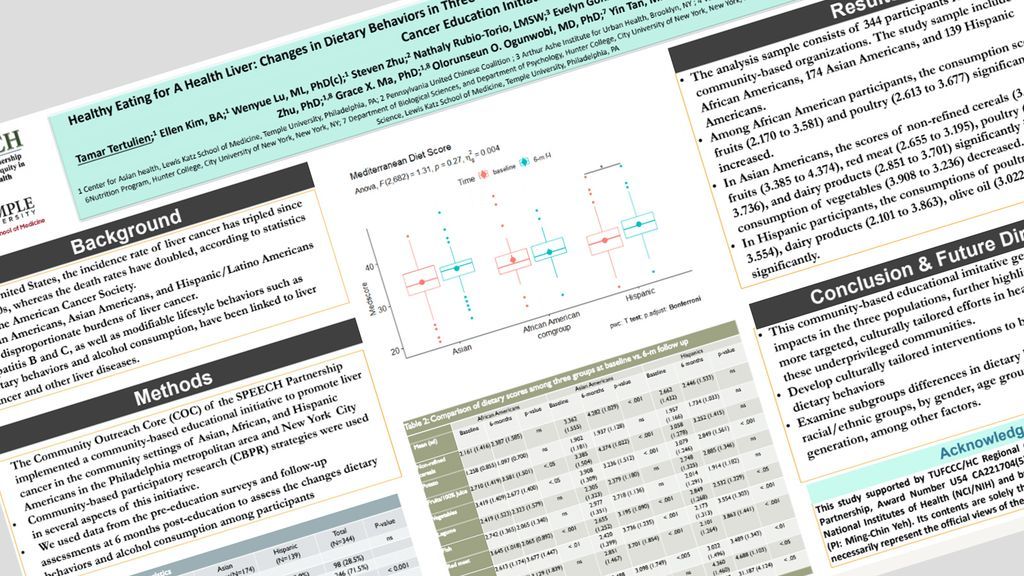
Healthy Eating for A Health Liver: Changes in Dietary Behaviors in Three Racial/Ethnic Minority Populations Through A Community-Based Liver Cancer Education Initiative
| Name | Tamar Tertulien |
| Institution | Temple University, Lewis Katz School of Medicine, Center for Asian Health |
| Research Field | Population Research |
| Role at Institution | Undergraduate Student |
| Presenter(s) | Tamar Tertulien |
